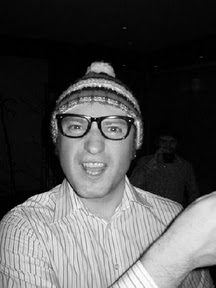I read this story and listened to and read other supporting news stories today. As a scientist, I am all for accurate reporting. It frustrates me to listen in to talk shows or read posts by misinformed, opinionated, but ultimately wrong people discussing science stories on the news. Take the MMR furore, millions of babies have now not been vaccinated and may catch some of the diseases it prevents while waiting for the singular injections, which in turn will probably increase the rates infection of a preventable disease. The cause? One article suggesting a slight correlation between the MMR jab and autism. The news reports blew it out of proportion and at no point was any hard fact put up to inform people. So there is a risk associated with a vaccine? So what! There is a risk associated with crossing the street, but many people do it and with out crossing the street they can not carry out their daily lives. It's not about risk it's about acceptable risk.
Anyway, I'm not writing this in order to argue for or against old news. What is new news is the recommendations for science journalism:
* Newspapers and broadcasters should employ more science graduates
* Scientists and science graduates should be encouraged to undertake media training
* Universities should offer multidisciplinary science degrees which include issues of ethics
* Policymakers need a better understanding of public perceptions of risk
This is all well and good when a story is being covered by a science correspondent, what this doesn't address is what happens when a science story moves from the science correspondent to the political correspondent as the news story gathers pace and becomes a full scale political story. You can't keep the facts from being sensationalised because the political correspondent sees his/her spin on it and also they are not formally trained in science. Seriously, would you read political or economic commentary from a person with a chemistry degree? No, you'd expect a politics or economics graduate with experience in the field otherwise the story isn't credible.
The other side of this is that censoring the news or regulating the news is either wrong or right, but never in the middle. If you censor science stories, what about the stories that get the facts wrong in other areas. You either censor them all or none. The stories that ruin people's lives based on rumour and conjecture or take down political careers could equally be censored. Personally I feel that love them or hate them the journalists bring the stories to our attention and do provide a source of information about important news that may otherwise pass them by. Hell, it may even save a life or benefit others if someone goes to the doctor or whistle-blows on their employer based on information in the news.
What we really need to do is not focus on the journalists, but on the readers. If the average member of the public isn't science savvy enough to question something and do their own research or can't stop themselves from believing everything put in front of them it's them that needs help.
Don't censor the media, enlighten the people.
2006-03-03
Subscribe to:
Post Comments (Atom)

No comments:
Post a Comment